
Find Help
More Items From Ergsy search
-

What is the sugar tax in the UK?
Relevance: 100%
-
Is the sugar tax applied to diet or zero sugar drinks?
Relevance: 96%
-
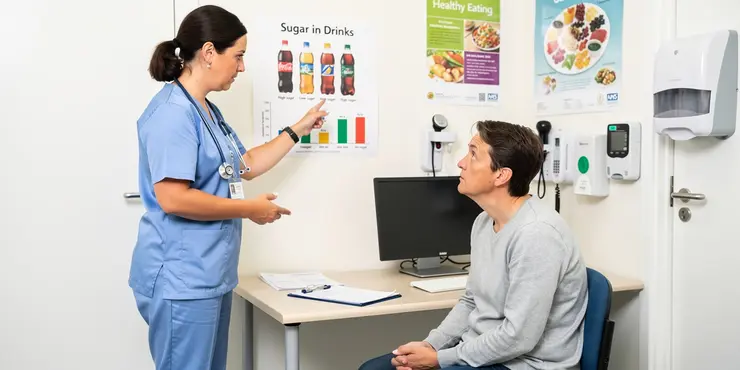
Has the sugar tax affected the sugar content in drinks?
Relevance: 96%
-

Who pays the sugar tax?
Relevance: 96%
-

What is the purpose of the sugar tax?
Relevance: 95%
-

What are the long-term goals of the sugar tax?
Relevance: 91%
-

Has the sugar tax been effective?
Relevance: 91%
-

Which drinks are exempt from the sugar tax?
Relevance: 89%
-
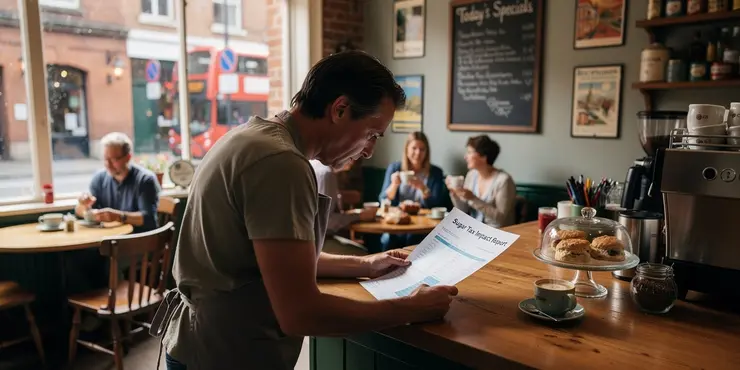
Does the sugar tax apply to small businesses?
Relevance: 88%
-

How does the sugar tax affect consumers?
Relevance: 88%
-

How is the revenue from the sugar tax used?
Relevance: 88%
-
How much revenue has the sugar tax generated?
Relevance: 85%
-

Has the sugar tax led to innovation in the drinks industry?
Relevance: 84%
-

How does the sugar tax align with public health strategies?
Relevance: 83%
-

What impact has the sugar tax had on obesity rates?
Relevance: 82%
-
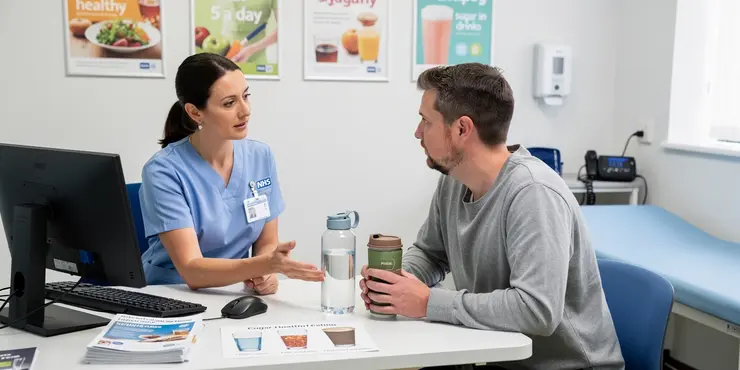
When was the sugar tax introduced in the UK?
Relevance: 72%
-
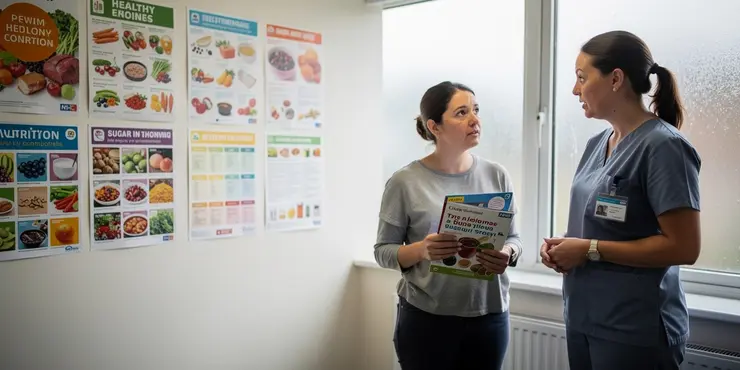
What are the rates for the sugar tax?
Relevance: 72%
-

How is the sugar tax applied?
Relevance: 72%
-
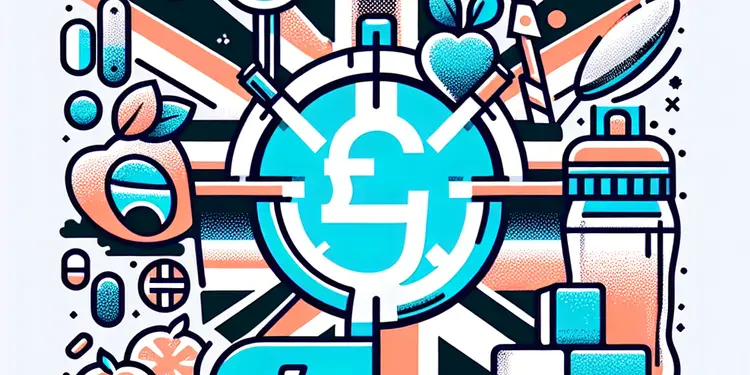
Are sugar substitutes healthier than regular sugar?
Relevance: 62%
-
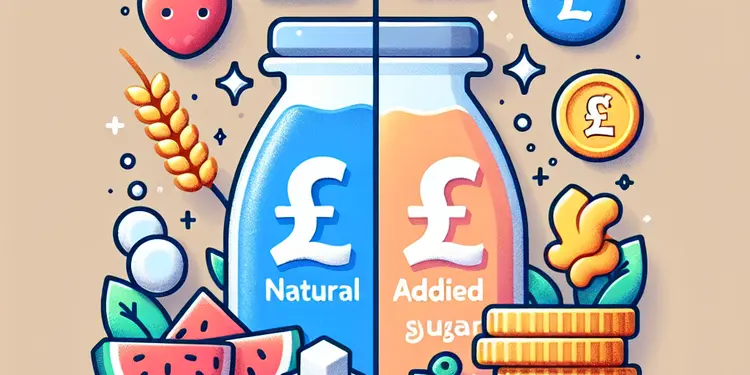
What is the difference between natural sugar and added sugar?
Relevance: 60%
-

Have any other countries implemented a sugar tax similar to the UK?
Relevance: 60%
-

What is the 'sugar crash'?
Relevance: 59%
-
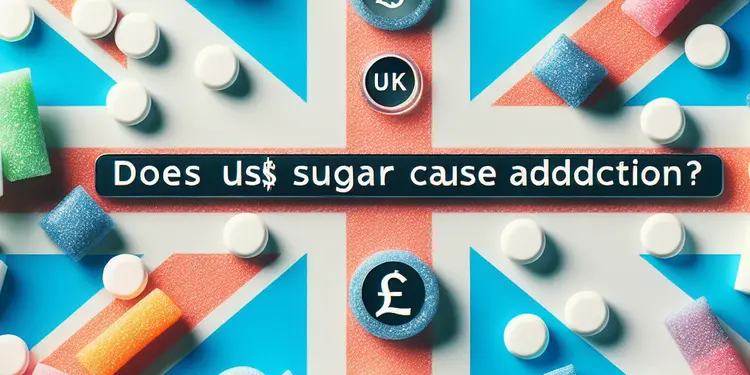
Does sugar cause addiction?
Relevance: 56%
-
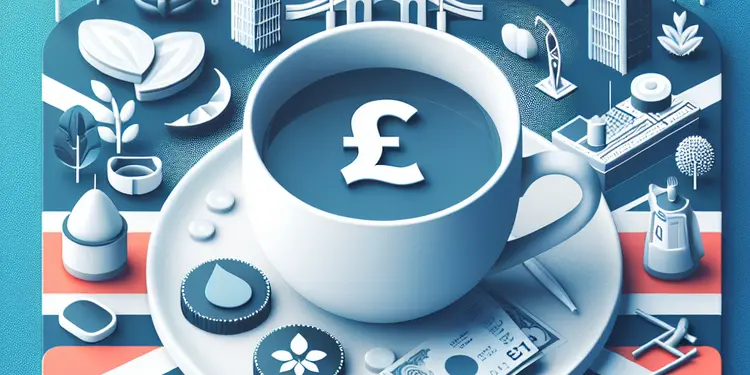
Can I have sugar if I am diabetic?
Relevance: 56%
-
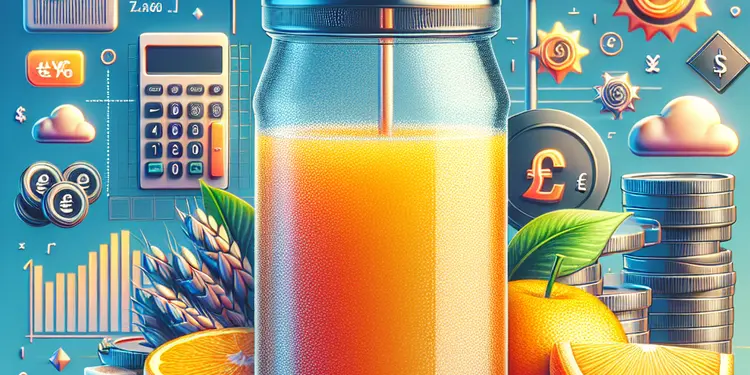
Is orange juice high in sugar?
Relevance: 56%
-

Is honey a better alternative to sugar?
Relevance: 55%
-
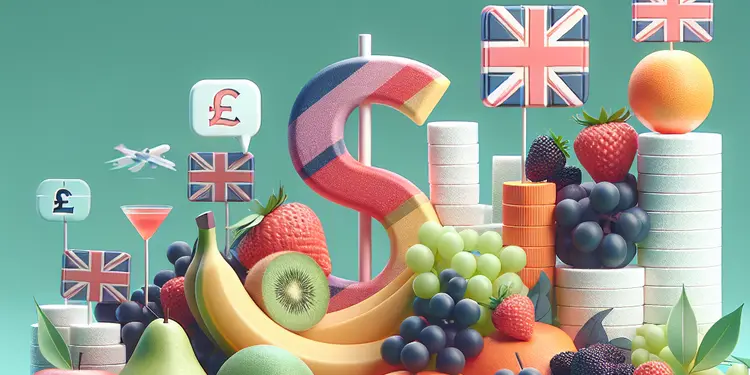
Is the sugar in fruit bad for you?
Relevance: 55%
-
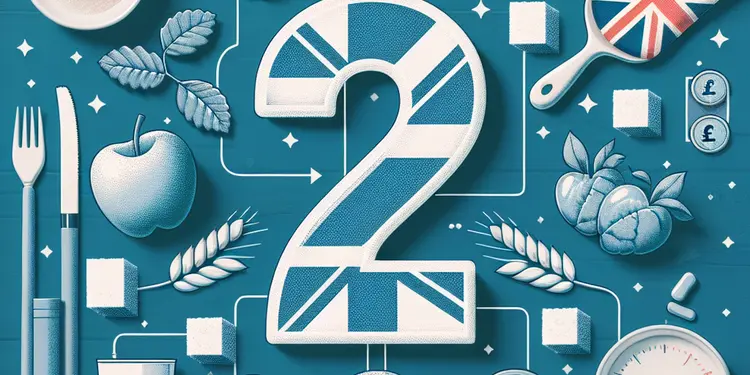
What is the role of sugar in a balanced diet?
Relevance: 54%
-

Why is it important to limit sugar intake?
Relevance: 53%
-
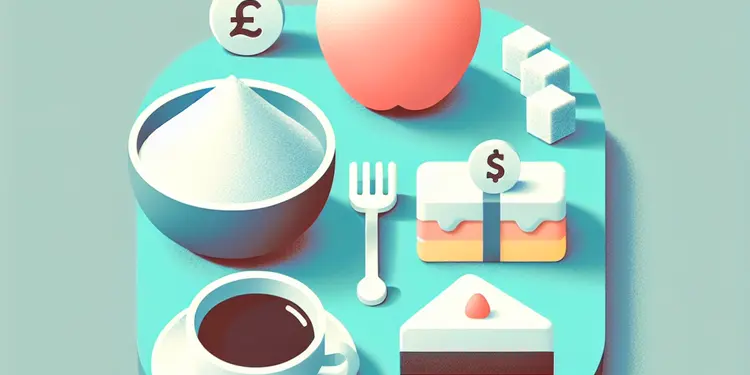
How can I reduce my sugar intake?
Relevance: 53%
-
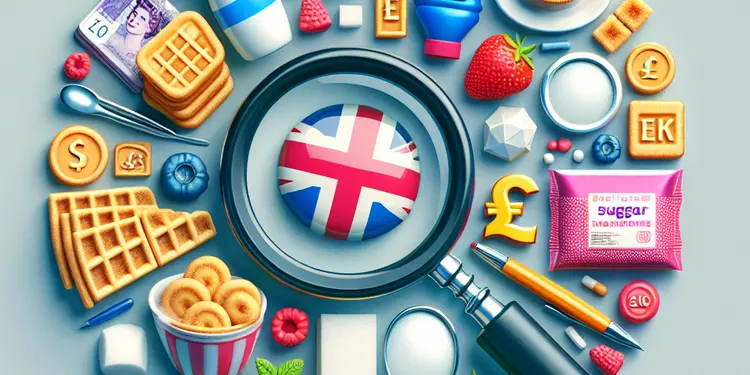
How do I determine how much sugar is in a product?
Relevance: 52%
-
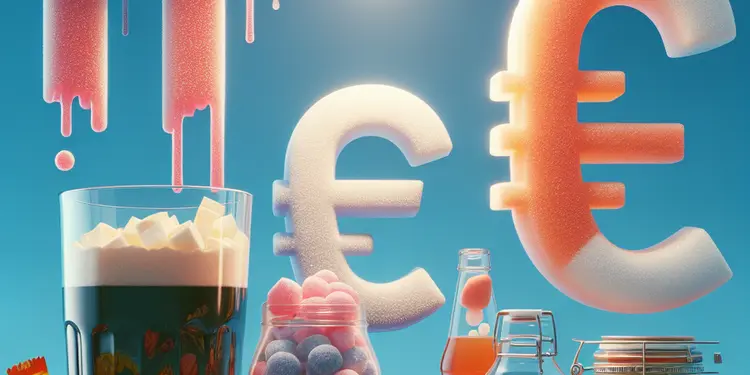
What are 'free sugars' and why should they be limited?
Relevance: 52%
-
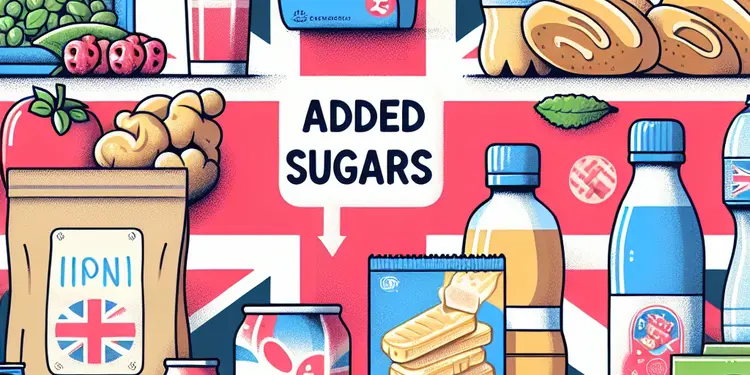
What are some hidden sources of added sugars?
Relevance: 52%
-

What is the recommended daily sugar intake for adults?
Relevance: 52%
-

How does sugar affect my energy levels?
Relevance: 51%
-

How does sugar impact mental health?
Relevance: 51%
-

How much sugar should I eat every day?
Relevance: 50%
-
Are there any criticisms of the sugar tax?
Relevance: 50%
-
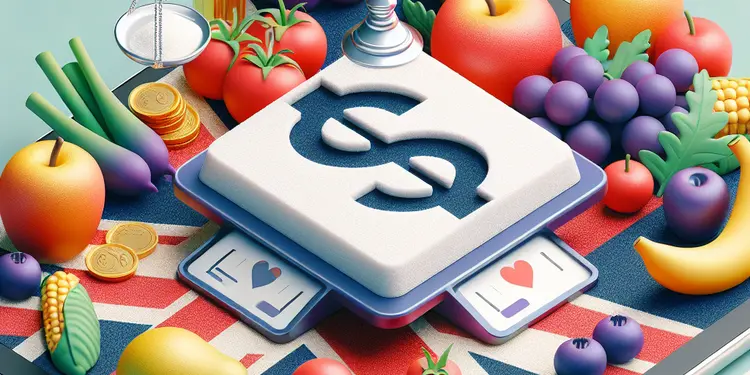
Can reducing sugar intake aid weight loss?
Relevance: 50%
-

Can Baxdrostat affect blood sugar levels?
Relevance: 49%
Introduction to the Sugar Tax
The sugar tax, officially known as the Soft Drinks Industry Levy, was introduced in the United Kingdom in April 2018. It aims to tackle rising obesity levels by discouraging the consumption of high-sugar drinks through financial incentives targeted at producers and importers to reformulate their products. The tax applies to soft drinks containing over 5 grams of sugar per 100 milliliters, with higher rates for drinks over 8 grams.
Who Initially Pays the Sugar Tax?
The immediate payers of the sugar tax are the manufacturers and importers of soft drinks. These companies are charged based on the amount of sugar in their products that exceed the specified thresholds. The levy is designed to encourage these entities to take action, either by lowering the sugar content in their drinks or passing the cost onto consumers in the form of higher prices.
The Role of Consumers
Although the tax is levied on producers and importers, the cost is often passed down to consumers. When manufacturers choose not to reformulate their products to reduce sugar content, they may increase the retail price of sugary drinks to cover the sugar tax. Consequently, consumers effectively pay the increased cost when purchasing these drinks. However, the overall aim is to reduce consumption of sugary beverages by making them less affordable, thereby encouraging consumers to select lower-sugar alternatives.
Government Revenue and Public Health
The revenue generated from the sugar tax is intended to support public health initiatives. The UK government allocates funds towards programs that promote physical activity and better nutrition in schools, addressing childhood obesity. As a result, the sugar tax not only potentially impacts consumer prices but also contributes to broader societal health goals.
Impact on the Beverage Industry
Many beverage companies have responded to the sugar tax by reformulating their drinks to contain less sugar, thereby avoiding paying the levy altogether. This reformulation trend has led to a decrease in the overall sugar content in drinks available in the UK market. Smaller companies or premium brands that maintain high sugar levels may still choose to pass on costs, affecting their customer base directly.
Conclusion
In summary, while the immediate burden of the sugar tax falls on the producers and importers of sugary drinks, the financial impact is generally passed to consumers if manufacturers raise prices. However, the wider objective of reducing sugar consumption and improving public health could lead to longer-term benefits for society. The sugar tax is a strategic tool aimed at inducing healthier consumption habits, with the funding helping to foster healthier environments for future generations.
What is the Sugar Tax?
The sugar tax was started in the UK in April 2018. It is a special rule to help people be healthier. It makes drinks with a lot of sugar more expensive. The rule is for drink makers and people who bring drinks into the country. If a drink has more than 5 grams of sugar in 100 milliliters, there is a tax. Drinks with more than 8 grams get an even higher tax.
Who Pays the Sugar Tax First?
The first people to pay the sugar tax are the companies that make or bring in the drinks. These companies have to pay the tax if their drinks have too much sugar. The tax tries to get these companies to either make their drinks with less sugar or make their drinks more expensive to cover the tax.
What About People Who Buy Drinks?
Though the companies pay the tax first, they often make drinks cost more for people who buy them. If a company does not make drinks with less sugar, they might raise the price to cover the tax. This means people end up paying more when they buy sugary drinks. The goal is to make sugary drinks more expensive so people buy drinks with less sugar.
Helping Health and Schools
The money from the sugar tax is used to help make people healthier. The UK government uses this money for programs in schools. These programs teach kids about exercise and eating healthy to help stop child obesity. The sugar tax not only changes drink prices but also helps make the whole society healthier.
How Drink Companies Change
Many drink companies are changing their drinks to have less sugar, so they don’t have to pay the tax. This means there is less sugar in drinks in the UK. But some small companies or special drinks with lots of sugar might still cost more because of the tax.
The End
In short, the sugar tax is first paid by the drink companies. But these companies might make people pay more if they don’t lower the sugar. The plan is to make people healthier by helping them drink less sugar. The money from the tax helps make places healthier for future kids.
Frequently Asked Questions
What is the sugar tax?
The sugar tax is a levy imposed on manufacturers, importers, and retailers of sugary drinks to discourage excessive sugar consumption and reduce obesity and health-related issues.
Who is legally responsible for paying the sugar tax?
The producers, importers, or distributors of sugary drinks are legally responsible for paying the sugar tax.
Does the sugar tax affect consumers directly?
Although the tax is levied on manufacturers and importers, consumers often bear the cost indirectly through higher prices for sugary drinks.
Are retailers who sell sugary drinks required to pay the sugar tax?
Retailers are usually not directly responsible for paying the sugar tax unless they are also the importers or manufacturers of the sugary drinks.
How does the sugar tax impact the price of sugary drinks?
The sugar tax often leads to higher retail prices for sugary drinks as manufacturers and distributors pass on the costs to consumers.
Is there any exemption from paying the sugar tax?
Certain small producers may be exempt or pay a reduced rate, but this varies by jurisdiction.
How is the sugar tax calculated?
The sugar tax is typically calculated based on the sugar content in the drink or the volume of sugary drinks produced or imported.
Are all sugary drinks subject to the sugar tax?
Not all sugary drinks are subject to the tax; specific criteria based on sugar content or type of beverage determine applicability.
Can businesses offset the cost of the sugar tax?
Businesses may adjust their prices, reformulate products to contain less sugar, or absorb the cost to avoid passing it entirely to consumers.
What is the purpose of the sugar tax?
The sugar tax aims to encourage healthier consumption habits, reduce sugar intake, and ultimately decrease the prevalence of sugar-related health issues.
Are fruit juices included in the sugar tax?
Pure fruit juices are typically exempt from the sugar tax, but sweetened juice drinks may be subject to it depending on their sugar content.
How do businesses comply with the sugar tax?
Businesses comply by filing returns, paying the levy based on their production or import quantities, and maintaining records as required by law.
Has the sugar tax been effective in reducing sugar consumption?
Studies have shown that the sugar tax has led to reductions in sugary beverage consumption in some regions, though effectiveness can vary.
What countries have implemented a sugar tax?
Several countries, including the UK, Mexico, and South Africa, have implemented a sugar tax.
Does the sugar tax apply to artificially sweetened drinks?
Sugar taxes generally do not apply to artificially sweetened drinks unless specified; they target added sugar content.
How often is the sugar tax rate reviewed or updated?
The sugar tax rate may be reviewed periodically by governments to reflect inflation, effectiveness, or policy changes.
What impact does the sugar tax have on the beverage industry?
The sugar tax encourages the beverage industry to reformulate products, innovate, or diversify into healthier options.
Are there penalties for not paying the sugar tax?
Yes, failure to comply with the sugar tax can result in penalties, fines, or legal action against non-compliant businesses.
Do all businesses dealing with sugary drinks have to register for the sugar tax?
Businesses that produce, import, or wholesale sugary drinks often need to register with tax authorities to comply with the sugar tax.
Can the revenue from the sugar tax be used for public health initiatives?
Yes, some governments allocate revenue from the sugar tax to fund health programs or initiatives aimed at promoting healthier lifestyles.
What is the sugar tax?
The sugar tax is extra money added to the cost of sugary drinks. It's to help people drink less sugar and stay healthy.
Here are some ways to understand it better:
- Pictures: Look at pictures that show sugary drinks and how much sugar they have.
- Ask for Help: Talk with someone you trust and ask them to explain it to you.
- Short Videos: Watch a short video that explains what a sugar tax is.
The sugar tax is money that companies have to pay. These companies make, bring in, or sell drinks with a lot of sugar. This is to help people drink less sugar, to stop people getting too fat, and to keep people healthy.
Who has to pay the sugar tax by law?
People who make, bring into the country, or sell sugary drinks must pay the sugar tax.
Does the sugar tax affect people who buy sugary drinks?
A sugar tax means sugary drinks cost more money. This can change what people buy. Some may choose drinks with less sugar because they cost less.
Tools to help understand better:
- Use pictures or diagrams to show how prices change.
- Talk to someone who can explain it more simply.
The government makes companies that make or bring in sugary drinks pay a tax. This means the drinks might cost more money for people who buy them.
Do shops have to pay a sugar tax for selling sugary drinks?
This question asks if shops need to pay extra money (tax) when they sell drinks that have a lot of sugar.
To understand better, you can:
- Use pictures to show what is a sugary drink.
- Ask someone to explain the tax with simple words.
- Use apps that read words out loud for you.
Shops that sell drinks don't usually have to pay the sugar tax. They only pay it if they also make or bring in the sugary drinks themselves.
What happens to the price of sweet drinks because of the sugar tax?
The sugar tax is a rule that makes drinks with a lot of sugar more expensive. This means when you buy a sweet drink, it might cost more money.
If drinks are too expensive, people might buy fewer of them. This can help people drink less sugar.
To make reading easier, you can use text-to-speech tools or highlight words as you read them.
The sugar tax makes sugary drinks cost more. This is because the people who make and sell these drinks add the tax to the price. So, when you buy sugary drinks, they cost more money.
Do some people not have to pay the sugar tax?
Some drinks don't have the sugar tax. A few people and groups do not have to pay it. If you find it hard to understand, ask someone to help or use a dictionary to learn new words.
Some small makers might not have to pay, or they pay less. It depends on where they are.
How do they work out the sugar tax?
The sugar tax is usually counted by how much sugar is in the drink or how many sugary drinks are made or brought into the country.
Do all sugary drinks have a sugar tax?
Not all drinks with sugar have to pay the extra tax. Only some drinks with a lot of sugar or certain types of drinks need to pay it.
Can businesses cover the cost of the sugar tax?
Businesses sometimes have to pay extra money because of the sugar tax. They might try to cover this cost by doing some things:
- They can raise the price of their drinks or food.
- They can use less sugar in their recipes.
- They can look for cheaper ingredients.
- They can change their products to include healthier options.
These ideas can help businesses deal with the sugar tax.
Support tools
- A calculator can help work out new prices.
- A recipe app can help find healthy options.
Shops might change their prices. They could make products with less sugar. Or they might pay extra money themselves and not charge shoppers more.
Why do we have a sugar tax?
The sugar tax is a way to help people eat and drink better. It tries to make people use less sugar. This can help them stay healthy and have fewer problems that come from eating too much sugar.
Do fruit juices have a sugar tax?
Fruit juices that are 100% fruit usually do not have extra taxes. But if juice drinks have extra sugar, they might have a sugar tax.
How do businesses follow the sugar tax rules?
Businesses follow the sugar tax by doing a few things:
- They check how much sugar is in drinks they sell.
- They pay extra money to the government if drinks have too much sugar.
- They try to make drinks with less sugar.
Here are some tools to help:
- Use labels to see how much sugar is in drinks.
- Use calculators to work out extra money they need to pay.
Businesses follow the rules by doing three things. First, they fill out forms called returns. Second, they pay a fee, which depends on how much they make or bring into the country. Third, they keep track of all this by writing it down, like the law says they should.
Did the sugar tax help people eat less sugar?
Some places have a sugar tax. This means drinks with lots of sugar cost more money. Studies show that because of this tax, people buy fewer sugary drinks in some places. But it doesn't work the same everywhere.
Which countries have a sugar tax?
Some countries make people pay extra money on sugary drinks and foods. This is called a "sugar tax."
If reading is hard, you can try using pictures or videos to help understand. You can also ask someone to explain it to you.
A few countries, like the UK, Mexico, and South Africa, have added a tax on sugary drinks.
Do drinks with fake sugar have a sugar tax?
Here is a tool that might help:
- Talk to someone: Ask a friend or family member to explain it to you.
- Use pictures: Look for pictures or videos about sugar tax on the internet.
- Online tools: Use websites that explain things in simple words.
Sugar taxes usually do not apply to drinks with fake sweeteners. They focus on drinks with real added sugar.
When does the government check or change the sugar tax?
The government looks at the sugar tax to see if it needs changing. They might do this every year or every few years.
You can use tools or ask someone to help you understand better.
The government might look at the sugar tax rate every now and then. They do this to check if it goes up with prices, if it’s working well, or if they want to change how it works.
How does the sugar tax change drinks businesses?
The sugar tax makes drinks with a lot of sugar more expensive.
This helps people choose healthier drinks.
It can make drinks companies use less sugar in drinks.
Some tools can help you understand more:
- Pictures and charts can show how the sugar tax works.
- Ask someone to read this with you if you find it hard.
- Watch videos about the sugar tax to learn more.
The sugar tax helps drink companies make drinks that are better for us. They might change what's in the drinks, think of new kinds, or make drinks that are healthier.
Do you get in trouble for not paying the sugar tax?
If a business doesn't follow the sugar tax rules, they can get into trouble. They might have to pay money as a fine, or there could be legal problems.
Do all businesses that sell sugary drinks have to sign up for the sugar tax?
Here is a simpler way to understand this:
If a business sells drinks with a lot of sugar, does it need to sign up for a special tax?
To make it easier to understand, you can:
- Use pictures to show what sugary drinks are.
- Use simple words and short sentences.
- Ask someone to read it with you and explain.
If a company makes, brings into the country, or sells sugary drinks in large amounts, they might have to tell the tax office about it. This is to follow the rules about the sugar tax.
Can the money from the sugar tax help pay for health services?
Yes, some governments use money from the sugar tax to pay for health programs. These programs help people live healthier lives.
Useful Links
This website offers general information and is not a substitute for professional advice.
Always seek guidance from qualified professionals.
If you have any medical concerns or need urgent help, contact a healthcare professional or emergency services immediately.
Some of this content was generated with AI assistance. We’ve done our best to keep it accurate, helpful, and human-friendly.
- Ergsy carfully checks the information in the videos we provide here.
- Videos shown by Youtube after a video has completed, have NOT been reviewed by ERGSY.
- To view, click the arrow in centre of video.
- Most of the videos you find here will have subtitles and/or closed captions available.
- You may need to turn these on, and choose your preferred language.
- Go to the video you'd like to watch.
- If closed captions (CC) are available, settings will be visible on the bottom right of the video player.
- To turn on Captions, click settings .
- To turn off Captions, click settings again.
More Items From Ergsy search
-

What is the sugar tax in the UK?
Relevance: 100%
-
Is the sugar tax applied to diet or zero sugar drinks?
Relevance: 96%
-

Has the sugar tax affected the sugar content in drinks?
Relevance: 96%
-

Who pays the sugar tax?
Relevance: 96%
-

What is the purpose of the sugar tax?
Relevance: 95%
-

What are the long-term goals of the sugar tax?
Relevance: 91%
-

Has the sugar tax been effective?
Relevance: 91%
-

Which drinks are exempt from the sugar tax?
Relevance: 89%
-

Does the sugar tax apply to small businesses?
Relevance: 88%
-

How does the sugar tax affect consumers?
Relevance: 88%
-

How is the revenue from the sugar tax used?
Relevance: 88%
-
How much revenue has the sugar tax generated?
Relevance: 85%
-

Has the sugar tax led to innovation in the drinks industry?
Relevance: 84%
-

How does the sugar tax align with public health strategies?
Relevance: 83%
-

What impact has the sugar tax had on obesity rates?
Relevance: 82%
-

When was the sugar tax introduced in the UK?
Relevance: 72%
-

What are the rates for the sugar tax?
Relevance: 72%
-

How is the sugar tax applied?
Relevance: 72%
-

Are sugar substitutes healthier than regular sugar?
Relevance: 62%
-

What is the difference between natural sugar and added sugar?
Relevance: 60%
-

Have any other countries implemented a sugar tax similar to the UK?
Relevance: 60%
-

What is the 'sugar crash'?
Relevance: 59%
-

Does sugar cause addiction?
Relevance: 56%
-

Can I have sugar if I am diabetic?
Relevance: 56%
-

Is orange juice high in sugar?
Relevance: 56%
-

Is honey a better alternative to sugar?
Relevance: 55%
-

Is the sugar in fruit bad for you?
Relevance: 55%
-

What is the role of sugar in a balanced diet?
Relevance: 54%
-

Why is it important to limit sugar intake?
Relevance: 53%
-

How can I reduce my sugar intake?
Relevance: 53%
-

How do I determine how much sugar is in a product?
Relevance: 52%
-

What are 'free sugars' and why should they be limited?
Relevance: 52%
-

What are some hidden sources of added sugars?
Relevance: 52%
-

What is the recommended daily sugar intake for adults?
Relevance: 52%
-

How does sugar affect my energy levels?
Relevance: 51%
-

How does sugar impact mental health?
Relevance: 51%
-

How much sugar should I eat every day?
Relevance: 50%
-
Are there any criticisms of the sugar tax?
Relevance: 50%
-

Can reducing sugar intake aid weight loss?
Relevance: 50%
-

Can Baxdrostat affect blood sugar levels?
Relevance: 49%


